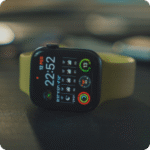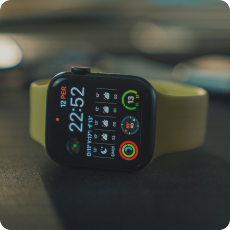Astrophobia is the fear of the stars, outer space, and the night sky. It may also be related to an intense fear of aliens. Astrophobia is a specific phobia, an irrational and intense fear triggered by exposure to or thoughts about a particular object or situation. This phobia has a defined object—specifically, the stars, outer space, and sometimes extraterrestrial threats. The word ‘astrophobia’ comes from two Greek words: ‘astro’ meaning stars and ‘phobos’ meaning fear. These Greek words are important for understanding the scientific and psychological concepts behind this phobia. Astrophobia is considered an irrational fear, often experienced as an extreme fear that can be overwhelming and difficult to control.

For many people, gazing up at the stars is a calming and relaxing experience. The night sky can evoke a feeling of awe, beauty, and wonder, but for some, it can also trigger intense fear and anxiety. However, not everyone feels this way when looking up into the night sky. For some people, the night sky can cause panic, heart palpitations, dizziness, and fear. If these sound familiar, you may suffer from astrophobia.
Like other common phobias, astrophobia can interfere with daily life and cause persistent anxiety. The fear of stars is sometimes called siderophobia, and it is important to note that astrophobia is distinct from astraphobia, which is the fear of thunder and lightning. Astrophobia, or outer space phobia, is often reinforced by popular culture; many films involve doomsday scenarios, which can heighten fears related to space and extraterrestrial threats.
Astrophobic people—those who experience outer space phobia—may go to great lengths to avoid activities or environments associated with space in order to manage their anxiety.
Introduction to Astrophobia
For those affected by astrophobia, even thinking about the vastness of space or seeing images of the night sky can trigger overwhelming anxiety. This fear can manifest through a range of physical symptoms, including nausea, dizziness, rapid heartbeat, and, in extreme cases, panic attacks.
The persistent fear and extreme distress associated with astrophobia can interfere with daily life, making it difficult to enjoy activities that others find calming or awe-inspiring. If you or someone you know experiences these symptoms, it’s important to recognize that astrophobia is a real mental health condition, and seeking support from a mental health professional can be a crucial step toward managing the phobia and improving quality of life.
Symptoms of Astrophobia
The physical and emotional responses experienced by astrophobic people are similar to those seen in other phobias. Therefore, when thinking about or viewing outer space, those suffering from this condition may experience the following symptoms:
- Panic
- Difficulty functioning
- Intense fear
- Nausea
- Dizziness
- Rapid heartbeat
Astrophobic people may avoid activities or environments associated with outer space to manage their anxiety, and may even avoid watching films about space, aliens, or related conspiracy theories to prevent fear or panic attacks.
If thoughts or images of outer space cause you to experience these symptoms, then you may meet the criteria for a specific phobia.
Causes of Astrophobia
The exact nature of astrophobia is complex, with several factors potentially contributing to its development. Popular culture often plays a significant role—films that involve doomsday scenarios or depict hostile intelligent life beyond our own planet can fuel anxiety and fear about outer space.
For some, a traumatic event, such as a frightening documentary or a personal experience related to space, may trigger the onset of this phobia. Family history and genetic predisposition can also make certain individuals more susceptible to developing astrophobia, as with other specific phobias. Additionally, the fear of the unknown—whether it’s concerns about government cover-ups, unidentified flying objects, or the possibility of alien life—can intensify feelings of unease. These influences combine to create a persistent fear that can be difficult to manage without support.
Living With Astrophobia
Specific phobias, such as astrophobia, are often considered irrational, meaning the person knows logically that they do not need to be afraid. The body’s fight-or-flight response activates when presented with the feared situation (such as being outside at night). The body produces responses to help you escape the situation quickly and without harm. Therefore, your heart may race, your breath may quicken, and your body prepares for action.
Humans are adaptable creatures and will seek ways to avoid discomfort. The fight-or-flight response is not comfortable and will cause you to keep away from situations where you may see or think about outer space. For those struggling with astrophobia, this means avoiding going outside at night. This may drastically interfere with your life if you choose not to go out with friends, have pets that need to be let outside at night, or struggle to find work during the daylight hours only.
Coping Mechanisms
Managing astrophobia often involves adopting a variety of coping strategies to reduce anxiety and regain a sense of control. Relaxation techniques, such as deep breathing exercises, progressive muscle relaxation, and visualization, can help calm the body’s fear response when confronted with thoughts or images of outer space.
Learning more about astronomy and the science behind celestial bodies can also help demystify space and lessen irrational fears. Connecting with others through support groups or online forums can provide reassurance and a sense of community, reminding individuals that they are not alone in their fears. Additionally, challenging negative thought patterns and replacing them with more balanced, realistic perspectives can be an effective way to reduce the power of the phobia. By gradually incorporating these coping mechanisms, individuals with astrophobia can begin to face their fears and improve their overall well-being.
Treatment Options
Seeking counseling to work through astrophobia can help you process the fears and reduce your body’s response to outer space. Counseling also helps to work on coping strategies to improve your ability to tolerate the discomfort of being outside in the dark. Two of the more common therapeutic approaches to treating specific phobias, such as astrophobia, are exposure therapy and CBT, as detailed below.
Exposure-Based Therapy
Exposure-based therapy is one of the most commonly used treatment options in counseling for a phobia, like astrophobia. This type of treatment starts with helping the client develop strategies to calm their bodies and cope with anxiety. After the client has developed healthy coping strategies, the client is slowly exposed to stimuli that activate the fear response in a controlled and manageable way.
For astrophobia, a client may be asked to think about going outside at dusk or shown a picture of a sunset. The client learns to manage the fear and emotions that result from exposure to the stimuli until it no longer activates their full fear response. They may then be shown a picture of a star or the moon, and again, the mental health professional helps them cope with the emotions and manage the fear response. The exposure continues to increase to more provoking stimuli as the client can handle it.
It may sound frightening to go to therapy to be exposed to your biggest fear. However, exposure therapy is a gradual process, and the goal is not to overwhelm you.
Your sessions will not be at midnight under the moon. The goal of exposure therapy is to give the client resources to cope with the fear and slowly integrate those resources so when they are exposed to the night sky, they are less fearful and better able to cope.
Cognitive Behavioral Therapy
Cognitive behavioral therapy (CBT) can also help identify the fear and change the automatic thoughts related to the fear. CBT is typically used together with exposure therapy to help identify and process the thought process and reduce the body’s fear response.
Final Thoughts
Working through astrophobia is best done with a mental health professional, as working on it alone could make it worse. By exposing yourself to your fear without the gradual processing of therapy, you could intensify it by overwhelming the body’s fear response. Many people with specific phobias do not seek treatment. The idea of seeking treatment may be too scary, embarrassing, or may not feel like a ‘good enough’ reason to attend therapy, despite the significant negative impact it can have on their lives. If you are among those who feel this way, you may want to consider signing up with a provider of online therapy services, which is less expensive, more convenient, and less of a commitment than in-person counseling.
While working through astrophobia alone is not recommended, developing coping strategies may be a helpful first step in working through any phobia. Relaxation strategies such as meditation and mindfulness help the body learn to be calm and focused on the body’s sensations. Small steps towards facing your fear may be helpful, such as looking out the window at dusk.
Another helpful strategy can involve using distractions, like listening to music when you must walk outside at night or having a support person present when you spend a short time under the night sky.
The fear of being outside at night can be a debilitating phobia as it can impact how you function in your life. Therapy treatment helps develop coping strategies and can decrease the fear response. If astrophobia or another phobia is impacting your ability to do the things you want, find a mental health professional to help you.
Sources
- Choy, Y., Fyer, A. J., & Lipsitz, J. D. (2007). Treatment of specific phobia in adults. Clinical psychology review, 27(3), 266–286. https://doi.org/10.1016/j.cpr.2006.10.002
- Grös, D. F., & Antony, M. M. (2006). The assessment and treatment of specific phobias: a review. Current Psychiatry Reports, 8(4), 298–303. https://doi.org/10.1007/s11920-006-0066-3
- Hamm A. O. (2009). Specific phobias. The Psychiatric clinics of North America, 32(3), 577–591. https://doi.org/10.1016/j.psc.2009.05.008
- Senftleben, U., Seidl, E., Leonhardt, L., Hilbert, K., Scherbaum, S., Muehlhan, M., Beesdo-Baum, K., & Schäfer, J. (2025). The cost of fear: Impairments of decision-making in specific phobia. Behaviour research and therapy, 186, 104688. https://doi.org/10.1016/j.brat.2025.104688
- Steimer T. (2002). The biology of fear- and anxiety-related behaviors. Dialogues in clinical neuroscience, 4(3), 231–249. https://doi.org/10.31887/DCNS.2002.4.3/tsteimer
- The National Institute of Mental Health. (n.d.). Specific Phobia. National Institute of Mental Health (NIMH). Retrieved July 17, 2025, from https://www.nimh.nih.gov/health/statistics/specific-phobia










